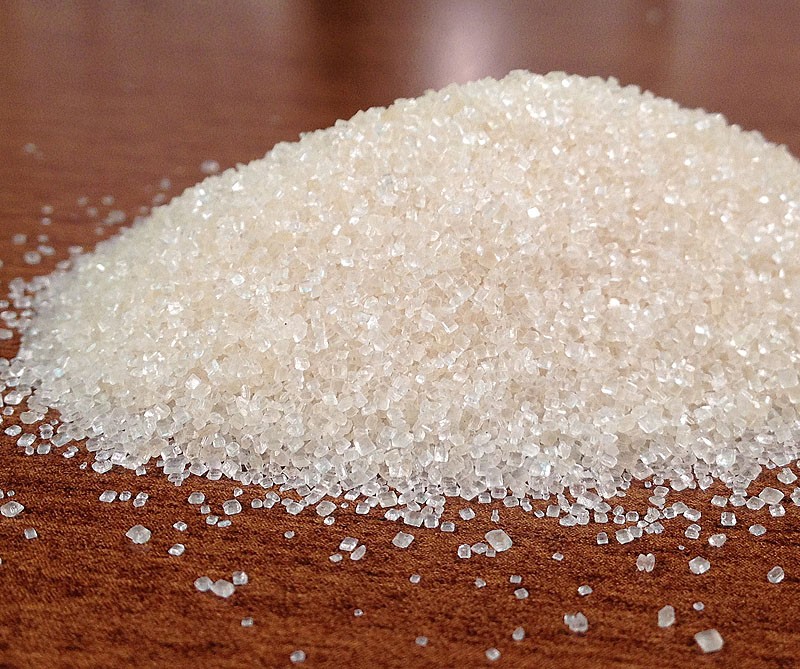Cane Sugar Processing: From Area to Table-- A Step-by-Step Overview
Cane Sugar Processing: From Area to Table-- A Step-by-Step Overview
Blog Article
An In-depth Overview of the Health And Wellness and Economic Ramifications of Walking Cane Sugar Processing on Regional Neighborhoods
Walking stick sugar processing plays a crucial function in shaping the financial landscape of regional communities, supplying employment possibilities and promoting secondary sectors. The wellness ramifications associated with high sugar intake can not be forgotten, as they contribute to climbing prices of excessive weight and diabetes mellitus.
Financial Benefits of Walking Cane Sugar Handling
Walking cane sugar processing offers substantial economic advantages that extend past the instant agricultural industry. The cultivation and handling of sugarcane produce various job chances, from farming to manufacturing and distribution. This employment generation not only supports neighborhood economic situations but additionally cultivates area advancement by offering steady earnings resources for families.
Moreover, the sugar industry boosts ancillary services, consisting of transport, devices supply, and packaging solutions (Cane Sugar Processing). As these sectors grow, they add to a more robust financial structure, improving overall area durability. The export potential of refined walking cane sugar further enhances financial benefits, placing regions as affordable players in worldwide markets
Financial investment in modern-day handling facilities can bring about raised productivity and efficiency, thus decreasing waste and optimizing resource usage. This change not just profits the neighborhood economic climate however also sustains sustainability initiatives by decreasing ecological impacts.
In addition, the income produced from walking cane sugar processing can be reinvested in local infrastructure, education, and medical care, advertising all natural community development. In general, the financial benefits of walking stick sugar processing are complex, providing a foundation for sustaining success in agricultural regions.
Health Risks Related To Sugar Usage
Excessive sugar usage presents significant wellness threats that require serious interest. High consumption of added sugars, specifically from processed drinks and foods, has been linked to various wellness difficulties.
Additionally, high sugar usage is connected with cardio disease. Raised blood sugar levels can lead to insulin resistance, a forerunner to different heart-related concerns. Furthermore, sugar can have harmful results on dental health and wellness, resulting in dental caries and gum illness, as bacteria in the mouth thrive on sugar, producing acids that erode tooth enamel.
Additionally, emerging research suggests a potential link in between high sugar consumption and psychological health problems, such as depression and anxiety. As communities face these health and wellness threats, it becomes necessary to advertise understanding and encourage healthier dietary choices. Attending to sugar consumption is vital not only for individual health yet also for the general health of regional neighborhoods, stressing the need for extensive public wellness techniques.
Ecological Impacts of Sugar Production
Regularly overlooked in conversations about sugar's implications is the substantial environmental effect of sugar production. The growing of sugarcane often necessitates substantial land use, resulting in deforestation, loss of biodiversity, and disruption of local ecological communities. The conversion of forests and wetlands right into sugar vineyards can lead to habitat destruction, harmful numerous species and altering ecological balance.
In addition, sugar manufacturing is resource-intensive, consuming considerable amounts of water for watering. This can cause exhaustion of neighborhood water resources, adversely impacting both farming practices and area access to tidy water. Furthermore, the use of chemical plant foods and pesticides in sugarcane farming can contribute to dirt destruction and water contamination, as overflow from these chemicals enters nearby rivers and lakes, influencing marine life and human wellness.
The ecological footprint includes the handling stage, where power consumption and waste generation more aggravate eco-friendly concerns. Air contamination from melting sugarcane areas, in addition to greenhouse gas exhausts, contribute to climate modification. Therefore, the environmental implications of sugar production warrant Website serious consideration, advising stakeholders to take on more sustainable techniques to alleviate these unfavorable results on regional ecosystems and areas.
Work Creation and Neighborhood Advancement
The ecological difficulties positioned by sugar production are frequently reversed by its possibility for financial advantages, especially in work development and area advancement. The walking cane sugar industry functions as a considerable resource of employment in numerous backwoods, offering work throughout numerous skill levels, from farming labor to processing and circulation roles. This employment not just supports specific family members but additionally contributes to the overall economic vitality of regional communities.
Moreover, the establishment of sugar handling centers promotes ancillary organizations, such as transportation services, devices supply, and maintenance companies. As these services grow, they develop added work and boost regional economic climates. The income produced from the sugar sector also leads to increased tax obligation revenues, which can be reinvested right into social work such as education and learning, facilities, and healthcare growth.
Furthermore, the sugar sector frequently participates in area development initiatives, such as supporting neighborhood schools and health programs, thus boosting the lifestyle for residents. By fostering solid neighborhood connections and advertising financial development, the walking stick sugar processing industry plays an essential function in uplifting local populations, making it an important component of sustainable growth techniques in sugar-producing regions.
Balancing Health and Economic Growth
In navigating the intricacies of walking browse this site stick sugar processing, an essential obstacle depends on balancing health and wellness factors to consider with economic development. The sugar market substantially adds to local economies by generating tasks, promoting associated sectors, and boosting tax revenues. However, the health and wellness effects associated with too much sugar consumption can bring about chronic illness such as weight problems, diabetes, and cardio concerns, which can worry public health and wellness systems and diminish workforce productivity.

Furthermore, governing frameworks can play an essential duty in guiding industry practices towards even more lasting and health-conscious approaches. By fostering collaboration between government bodies, wellness companies, and the sugar sector, communities can browse the duality of health and economic development, ensuring that the advantages of walking stick sugar processing are equitably shared while prioritizing public wellness.
Final Thought
Finally, the processing of walking cane sugar provides both substantial economic advantages and noteworthy health risks for neighborhood areas. While it fosters job production and promotes local growth, the involved health and wellness worries, particularly concerning obesity and diabetes mellitus, necessitate a cautious harmonizing act. By advertising responsible intake and investing in neighborhood education and learning and sustainable practices, it is possible to optimize economic benefits while decreasing negative health results, thereby ensuring a healthier future for local populations.
In addition, sugar can have destructive results on oral health and wellness, resulting in cavities and gum illness, as bacteria in the mouth grow on sugar, generating acids that deteriorate tooth enamel.
Addressing sugar consumption is critical not just for private health and wellness yet also for the overall wellness of neighborhood areas, highlighting the demand for comprehensive public wellness approaches.
Regularly ignored in conversations about sugar's effects is the significant ecological influence of sugar manufacturing. The health implications associated with extreme sugar intake can lead to chronic conditions such as weight problems, diabetic issues, and cardiovascular concerns, which can This Site concern public wellness systems and diminish labor force productivity.

Report this page